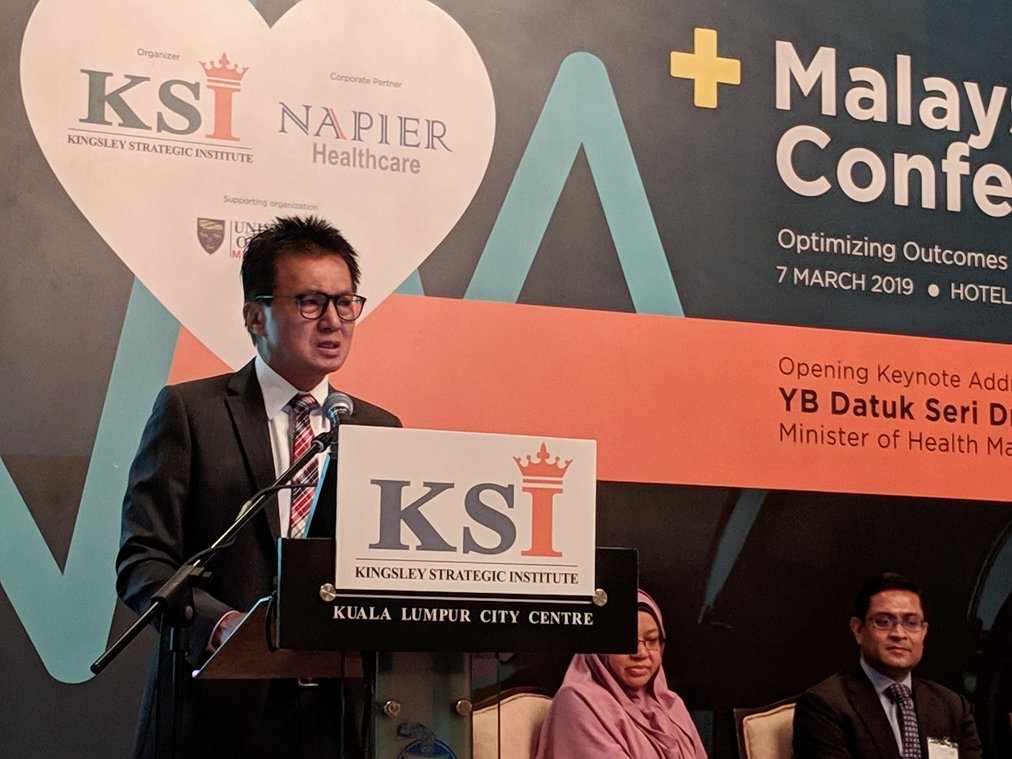KUALA LUMPUR, June 17 — Analysts urged the Health Ministry to increase the RM1 patient fees at its facilities set back in 1982, amid an increasingly unsustainable public health care system.
Public policy and health care consultant Dr Chua Hong Teck pointed out that Malaysia’s universal health coverage (UHC) was poorer than Thailand and even Vietnam, according to the UHC service coverage index in the 2017 Global Monitoring Report by the World Health Organization and the World Bank that measures how many in a population receive necessary health services irrespective of their living standards.
“Last fees by the Health Ministry were 1982 fees — RM1. Now it’s 2019, still RM1. How can it be?” Dr Chua told a forum organised by the Malaysian Medical Association (MMA) last Saturday titled “Malaysian health care — What needs to be done?”.
He said the Health Ministry should not be afraid of reviewing the RM1 user fees to see non-specialists at its clinics and hospitals, as people are already paying more out of their own pockets for private health care.
Dr Chua pointed out that private household out-of-pocket spending comprised 38 per cent of Malaysia’s total health expenditure in 2017.
“When fuel prices were floated every week, people generally just complained for a while, and then they got used to it already,” said Dr Chua.
“So I don’t think so we should be afraid of increasing user fees. RM1 can only buy you one Hacks or two Hacks.”
He said high out-of-pocket spending was not necessarily a bad thing, pointing out that he paid out-of-pocket for visits to the general practitioner (GP) because insurance did not cover such treatments.
According to the Health Ministry’s Malaysia National Health Accounts (MNHA) report on national health expenditure from 1997 to 2017, almost half, or 46 per cent, of out-of-pocket expenditure in 2017 was spent on outpatient services, followed by 24 per cent on inpatient services and 14 per cent on pharmaceuticals.
“GP service is relatively affordable. They’ve been complaining fees have not increased. I think it should,” said Dr Chua.
“A lot of people pay out-of-pocket anyway. So I think the government need not be so afraid because already, people are paying.”
Private clinic GPs have been demanding for their consultation fees of between RM10 and RM35 to be raised to the rate of their hospital-based counterparts of RM30 to RM125.
But Health Minister Dzulkefly Ahmad told GPs in a town hall last Tuesday to wait for the economy to improve first.
Dr Khor Swee Kheng, a physician and specialist in health systems and policy, told the MMA forum that the Health Ministry only collected RM700 million back from the user fees of RM1 and RM5 (to see a specialist) out of its RM29 billion budget.
“We need a new social contract. The social contract that we have today, RM1 and RM5, cannot go on,” he said.
The MMA forum also saw the doctors’ group hand over its Titiwangsa Declaration 2019 to Health Advisory Council chairman Dr Abu Bakar Suleiman to push for a high-quality, accessible, affordable and sustainable health care system in Malaysia.








